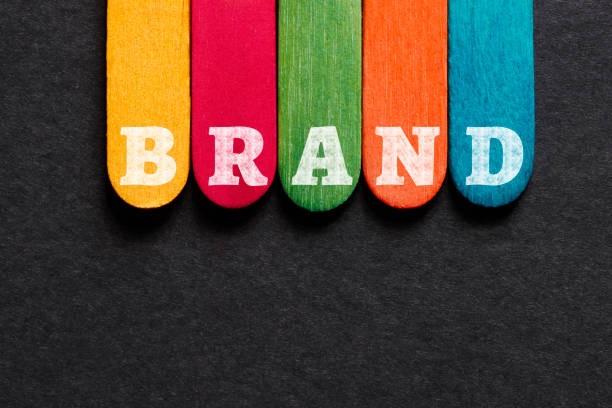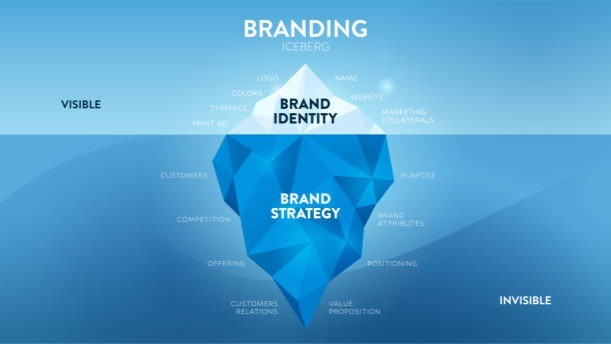The majority of Nigerian businessmen run their businesses like personal ventures. If you’ve ever watched Nigerian films, you’ve likely noticed a recurring education of the Nigerian people.
These films often depict the pitfalls of mismanaging personal and business finances, something that mirrors reality for many Nigerian entrepreneurs. In these films, there’s a familiar scene: a rich Nigerian man who lives a carefree life without a will, merging his personal expenses with his business.
Upon his death, his family faces disaster. In these movies, the men themselves are the brand, and they run their businesses however they see fit, often with little foresight or structure.
Now, you might be thinking, “What does this have to do with branding in modern times?” Well, much like these characters, many Nigerian businesses today lack a clear and consistent identity.
They’re built around the individuals behind them rather than being sustainable brands that can thrive beyond the owner’s presence.
What is Branding?

Before we discuss how to build a brand, let’s clarify what branding truly means. Branding isn’t just a logo or a set of colours.
It’s the consistent story your business tells, the identity, personality, and charisma it projects. In other words, branding is your business’s unique voice speaking in a crowded market.
As a digital marketing agency, we speak to dozens of businesses every day. Despite the availability of information, we notice that many Nigerian businesses assume they understand branding, but often, they don’t.
They’ve heard the term, and seen it mentioned frequently, but don’t fully grasp what it involves or how powerful it can be.
Branding vs. Marketing
It’s important to distinguish between branding and marketing, as these two are often confused. Branding is the story your business tells, while marketing is the set of activities that communicate that story to your audience.
Marketing drives awareness, but branding gives your business a memorable identity.
A strong brand creates trust, and in modern times, trust is critical: 71% of consumers say they only buy from brands they trust.
For Nigerian businesses, building this trust starts with creating a strong brand.
How to Build a Strong Nigerian Brand
Now, let’s get to the part we’ve all been waiting for, how do you create a strong brand that resonates with Nigerian consumers?
1. Create an Origin Story That Gets Attention
When creating a brand, the first thing to consider is your why. Why are you doing this? What problem or gap have you uniquely identified?
Your origin story is critical because it connects with people emotionally, and emotions build communities.
Ask yourself: “When my ideal customer hears this story, will they stop and listen?” A compelling origin story sets the foundation for everything, from your hiring process to your marketing strategy and channels.
2. Determine Your Target Audience
While a great story is essential, not everyone will connect with it. It’s crucial to identify your target audience, the people most likely to resonate with your story.
These are the individuals who will not only listen but engage with your brand, and ideally, become loyal customers. Your story often hints at who your audience is.
The better you know your audience, the more precisely you can tailor your brand to their needs and preferences.
3. Communicate Your Mission Statement
Your mission statement is your reason for being. It explains why your business exists and what problem you’re solving.
Once you’ve established a good story and identified your audience, communicate why you’re uniquely positioned to serve them.
A strong mission statement tells your audience why you’re the right business for their time and money. It shows that you’ve thought deeply about the challenges they face and crafted solutions designed specifically for them.
4. Define Your Difference
In every industry, competition is inevitable. Chances are, you’re not the only business offering your product or service.
This is why it’s critical to define your unique qualities, values, and benefits, what sets you apart from others in your field.
Ask yourself: “How am I solving this problem differently or better than my competitors?” Is there a frustration you’ve witnessed in the industry that you’re addressing?
Your uniqueness is what makes your brand stand out and positions you as the go-to solution in your niche.
5. Create Your Visual Assets
Now that you’ve established your story, audience, mission, and uniqueness, it’s time to bring it all together visually.
Your visual assets, logo, colour palette, typography, and other design elements, are how your audience will recognize you across different platforms.
Whether on social media, billboards, or email campaigns, consistency in your visual identity ensures your audience always knows it’s you. These elements are the glue that holds your brand identity together in the public eye.
6. Find Your Brand Voice
With the foundation set, your brand now needs a voice. If your brand were a person, what would they sound like? Are they playful? Professional? Friendly?
Your brand voice is the personality behind your words, and it’s crucial for building long-lasting relationships with your audience.
A consistent voice helps humanize your brand and makes it easier for customers to connect with you on an emotional level.
Conclusion
A strong brand doesn’t just sell products or services, it sells a story, a journey of difference, acceptance, and experience. And when done right, a brand creates systems that keep the business running smoothly, even when the founder steps away.
In Nigeria’s growing business world, those who build strong, trusted brands will be the ones that endure.


